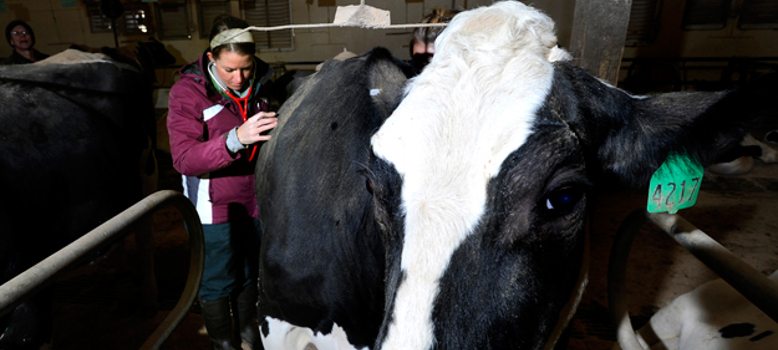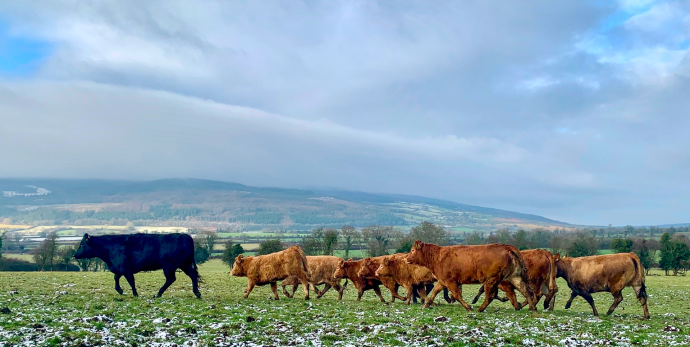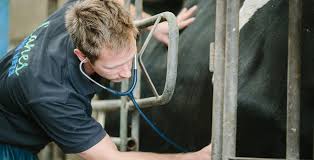Animal Health Reports
Animal Health Council Report March 2022

TB
Latest bovine TB Statistics
- The most recent meeting of the TB Stakeholders Forum took place on the 15th of February 2022.
- · The working groups; scientific finance, and the implementation provided the forum with an update on their recent activities.
- The most recent meeting of the TB Implementation Working Group took place on Tuesday 1st February 2022
- Disease trends, wildlife, inconclusive policy, communications animal health law and risk mitigation plans were discussed.
- Pre-emptive risk mitigating plans for contract rearing situations are currently being developed with the intention of reducing the risk of disease spread and addressing compensation concerns.
- DAFM are continuing with the remapping of badger setts nationally and have recognised the significant information being provided to them by farmers.
- The Animal Health Committee were represented at the Joint Oireachtas Committee by committee chair TJ Maher and Senior Policy Executive Tomas Bourke on Wednesday 16th February 2022. TB Strategy, Financial supports, eradication policy, wildlife control and funding the TB programme were all discussed.
- IFA continue to set out the key areas that must be addressed in the TB Strategy.
- IFA have highlighted the positive impact the facilitation of calf sales up 120 days old on the home market has had both in terms of calf welfare and value for both the seller and buyer.
- DAFM recognise this and have committed to using the data from the past 15 months to again seek a permanent facilitation within the EU Trade Directive.
- IFA objected to DAFM changes to contract rearing movements back to restricted farms that came into force in August that had impacted on compensation eligibility for these animals.
- DAFM agreed that females which moved out of their herd of birth prior to August 2021 and which subsequently move back into the herd of birth (i.e. contract rearing scenarios) during a restriction in that herd of birth will be eligible for OFMV during that breakdown.
- Any income supplement which the herd of birth is receiving will be reduced pro-rata according to the number of such females moving in. In cases where the rearing herd is restricted, females which moved out pre-August 2021 and which receive permission to move from the restricted rearing herd to their herd of birth will be eligible for OFMV if detected as reactors subsequently in that herd of birth.
- IFA are seeking an incentive payment for farmers who agree to remove Inconclusive animals from the farm
- IFA have again strongly rejected the blacklisting of farmers through TB herd categorisation.
- Capturing under the Wildlife Control programme has increased significantly in 2021
- The recently launched app for reporting badger sets on farms is been utilised by farmers
- The badger notification app can be accessed at this link.
- IFA are demanding the additional €1m provided for the Wildlife Programme in the budget is utilised to put ‘boots on the ground’ to carry out set surveying and capturing
- The Minister got Agriculture has announced the re-establishment of a deer stakeholder group. IFA have called for this to be convened immediately.
- IFA re pursuing fundamental changes to the support schemes in the TB programme. These include, higher levels of payment in the income supplement, depopulation grant and hardship grant schemes and changes to the eligibility criteria for income supplement and depopulation grant schemes as set out in our detailed submission to the TB Forum in 2018.
BVD
Latest BVD Weekly Figures
- The latest meeting of the BVD IG was held on the 17th of February 2022.
- IFA support the objective to reach BVD Free Status by 2023, recognising the benefits and the investments of farmers to-date in the programme.
- The next task for the BDV IG is to establish a cost-effective method of high-level surveillance in order to identify potential future BVD cases after free status is achieved.
- IFA will meet AHI and DAFM to discuss the post BVD free status surveillance methods and funding.
Maps of BVD cases 2013 and 2021
Veterinary Medicines
- IFA continue to highlight the key issues with the regulations which include anthelmintics becoming POM in 2022, prophylactic use of antibiotics will be banned (e.g. Blanket Dry Cow Treatment), a prescription for antibiotics will only be valid for 5 days and the issue of who can prescribe.
- Following significant work by IFA, DAFM have adjusted their interpretation of the regulation to allow vets to prescribe a limited amount of antibiotics that will likely be required on farm in advance of diagnosis of a condition.
- Recognising the concerns raised by IFA, Licensed Merchants and veterinary pharmacies, the Minister for Agriculture Charlie McConalogue has decided to defer implementation of the prescribing requirement for anti-parasitic products until June 1st, 2022.
- This deferment is an opportunity to develop an approach that allows farmers avail of maximum competition in the supply chain, and that prescribing is not influenced by commercial interests.
- IFA has called for meaningful engagement with key stakeholders to resolve the issue.
Electronic Prescription System
- DAFM have developed an electronic prescription system which is currently undergoing testing by a small number of vets across the country.
- The system has advantages but IFA have raised data concerns with DAFM. The access electronic prescriptions could provide for DAFM and others to individual farmers medicines usage is not acceptable. This has been raised directly with senior DAFM personnel.
Compulsory Bovine EID
- It will become compulsory to EID tag all calves from July 2022.
- Tag suppliers will have provided EID tags with all new orders since January 2022.
- IFA position is that farmers must be provided with adequate funding and that those farmers with stocks of tags already purchased must be facilitated past the July 1st 2022 deadline.
- IFA are seeking financial support for farmers who wish to purchase an EID reader
- Details of subvention scheme:
- EID tag sets are white in colour and will be eligible for funding under a tag subvention scheme.
- The intention is that the scheme will operate over 3 years (2022 to 2024 inclusive) with the first payments scheduled to take place in Quarter 4 2022.
- Payments in 2022 will be calculated on the number of new EID tag sets purchased from 1st January 2022 at a rate of €1 per new EID tag set.
- There is a maximum payment of €100 per farmer over the life of the scheme and no application process will be required.
- The scheme is proportionately weighted in favour of smaller producers.
- Farmers can only order annually the number of new tag sets required commensurate to the number of breeding females in the herd.








